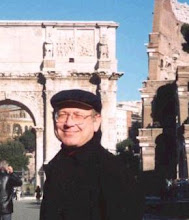Government is not reason; it is not eloquent; it is force. Like fire, it is a dangerous servant and a fearful master.
George Washington, Of the Origin and Design of Government
All human experience is individual experience. The world is seen by our individual set of eyes, felt by our individual nervous system, and experienced by our individual lives. Regardless of what authorities tell us, the truth of the world is our own individual truth.
We may speak of nations having a “national experience,” but that is pure metaphor, generalizing about the individual experience of many of a nation’s individuals. Nations, societies, teams, and families can be referenced as units, but, essentially, these units are really just combinations of individuals who share a common interest. No nation really has eyes; no society has a set of ears; and no race of mankind has a conscience that makes it feel guilty. Only individuals actually experience an experience.
The individuality of our experience does not require that we justify our place in society with bottomless issues such as economic justice, good and bad, or some inherent right granted to us by nature. Stripping ourselves of all our fantasies of memberships that bestow upon us rights, obligations, and duties, we are left with the nakedness of our individual experience. As individuals we experience and as individuals we act. We need no justification or set of inherent rights to conduct ourselves as individuals – it is just something that we do as individuals.
The individual does not have to be a selfish one. Just as we experience sensual pleasures as individuals, we also experience love for our spouses and children and compassion for other people and animals. Both the sociopath and the saint are essentially individuals acting as individuals regardless of the direction their individualism direct them. Whether we experience our world as people serving ourselves or others, that experience is only experienced as individuals.
Man’s ability to experience and act as an individual is limited by the coercion of neighborhood bullies, governments, and other parties that use force against him. Liberty is the lack of these coercive forces. The more liberty man has from these coercive forces, the more he can act, for good or worse, as an experiencing individual – as a human being.



